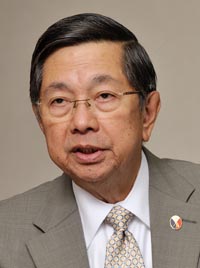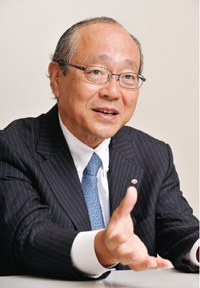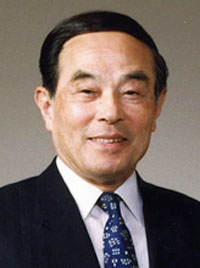
Having become one of the most important destinations of direct investment, the ASEAN market keeps growing. This year marks the 40th anniversary of friendship between ASEAN and Japan, and the two parties will surely continue to strengthen their connections. The ambassadors of Indonesia and the Philippines outlined ASEAN-Japan friendship.
Philippine partner
The Association of Southeast Asian Nations (ASEAN) and Japan have benefited from each other and the relationship will only grow stronger, Philippine Ambassador to Japan Manuel M. Lopez said.
 Philippine Ambassador Manuel M. Lopez
Philippine Ambassador Manuel M. Lopez"ASEAN-Japan relations have been dynamic for the past 40 years. ASEAN has benefited from Japan's support," Lopez said in his office at the Philippine Embassy in Tokyo. "We are in a mutually beneficial relationship in many ways. The Philippines is a rapidly developing and modernizing country and we get funding assistance by way of ODA (official development assistance) from Japan, and we, in turn, buy equipment and use technology from Japan."
ODA is one example of the mutual benefit. The Philippines and ASEAN can also benefit from ever-increasing direct investment (FDI) by Japanese companies, which also benefit from cheap low labor costs, a skilled workforce and the booming purchasing power in ASEAN.
The ASEAN-Japan Summit will be held in Tokyo this year, which marks the 40th anniversary of the two parties' cooperative relations.
The relationship will be stronger in every aspect, including economy, tourism and cultural exchange, Lopez said.
ASEAN has a combined population of around 600 million, which makes the region one of the most attractive markets for Japan. Per capita income is increasing rapidly in ASEAN, especially the Philippines, he said.
People in the Philippines like Japanese goods for their quality and the number of Japanese restaurants is increasing, he said, adding Uniqlo and Muji brands are popular, as are Japanese ramen restaurants, typically operated by Filipinos with Japanese partners.
Japanese convenience stores are also aggressively entering the Philippines. For example, Seven-Eleven has been there for a long time. Ministop and FamilyMart began operations in the country last year, and Lawson is thinking about it, he said.
Tourism is becoming active as the relaxation of visa regulations in Japan has been a boost for people from ASEAN to visit Japan.
As to Japan-Philippines air traffic, Japan has doubled the maximum number of flights to and from the Philippines, and thus the number of direct flights is expected to increase from next year, he said.
The increase in flights is expected to boost two-way tourism. Lopez said the proximity of Japan and the Philippines — a four-hours flight — puts the Philippines in a good position in ASEAN.
"Japanese go to the Philippines and play golf, and enjoy scuba diving and shopping for a three-day holiday," he said.
While Japan has made efforts to make it easy for people from Southeast Asia to visit Japan, a lot more Japanese have gone to ASEAN than people from ASEAN countries have come to Japan. For example, 415,000 Japanese visited the Philippines in 2012 while only 80,000 Filipinos visited Japan the same year. But these figures are expected to grow considerably in the years to come.
Lopez is also happy with cultural exchanges between Japan and ASEAN. Among several exchange programs, Japan arranges an annual tour for dozens of students from ASEAN to sail to other ASEAN countries under the Ship for Southeast Asian Youth Program (SSEAYP).
Asked if he has any requests for Japanese businesses and government, his answer was "Just visit us, we are your neighbors." "I always say when I meet Japanese business people, 'Invest in the Philippines. But even if you still have no firm business plans in doing business in the Philippines, just come to the Philippines. It's more fun.' "

The root of Katolec Corp. is the marine logistics business it started in Takamatsu, Kagawa Prefecture, in 1877. A fter World War II , the company entered overland logistics and established its status in the logistics industry.

FEC , The International Friendship Exchange Council, was established in May 1983. Kanagawa has served as chairman since 2001, when he was then president of Shin-Etsu C hemical. A t that time, he was extremely busy, but accepted the post because he "sympathized with the philosophy of FEC ."
